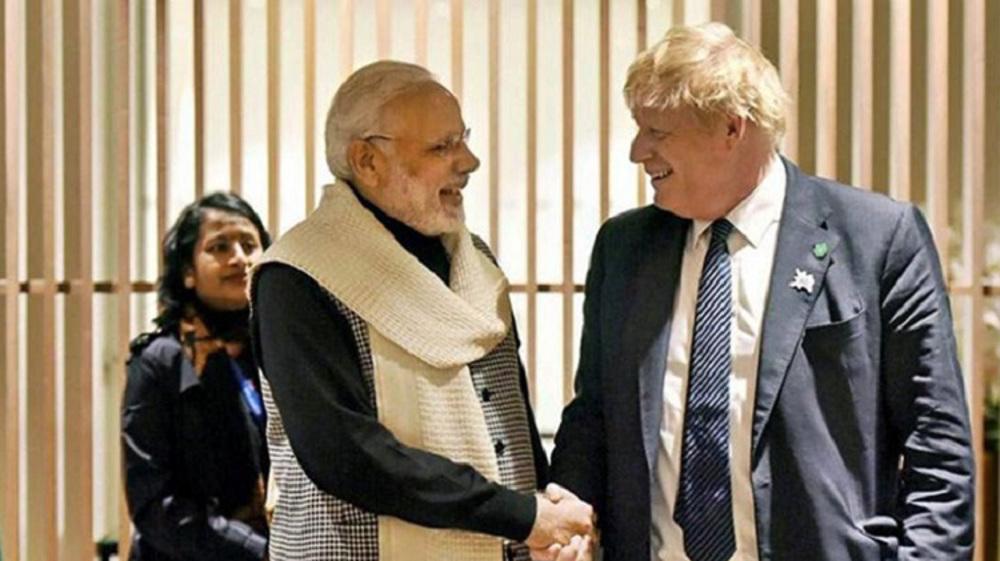Boris Johnson cancels trip to India over 'double mutant' Covid variant fear
Prime Minister, Boris Johnson, has been forced to cancel his long-awaited trip to India, largely due to fears over a new Covid variant that has taken hold in that country.
Announcing the decision, the British and Indian governments said in a joint statement: "In the light of the current coronavirus situation, Prime Minister Boris Johnson will not be able to travel to India next week”.
The statement added that the two leaders will stay in touch in the hope of meeting later this year with a view to launching “their ambitious plans for the future partnership between the UK and India”.
For his part, the PM said it was “only sensible” to cancel the trip “given what’s happened in India, the shape of the pandemic there”.
Echoing the sentiment of the joint statement by the UK and Indian governments, the PM added: "And I just want to stress that this is, we're going to be going back, the relationship between the UK and India is of huge importance, and I'll be talking to Narendra Modi on Monday, we'll be trying to do as much as we can, virtually”.
Underscoring the importance of the event to Whitehall, the PM’s visit was originally envisaged as a four-day trip before it was cut back last week to just one day in Delhi. And now of course it has been cancelled altogether.
India is currently in the grip of a massive Covid-19 wave, with more than 270,000 new infections recorded on Sunday (April 18) alone.
There is growing concern about the B.1.617 variant which carries two mutations, E484Q and L452R. Both are separately found in many other coronavirus variants, but they have been reported together for the first time only in India.
Hitherto, 77 cases of the B.1.617 variant have been detected in the UK.
Despite the deteriorating Covid situation in India – and the uncertainties regarding the double mutant variant – the UK has so far not added the country to its travel red list, which would compel incoming travelers to the UK to quarantine at a hotel.
When pressed on the matter, Johnson tried to avoid the question by saying: "The red list is very much a matter for the independent UK Health Security Agency - they will have to take that decision".
‘All wars have rules. All of those rules have been broken’ by Israel
VIDEO | Report flags India’s violation of rights of Rohingya detainees
Turkey's foreign minister meets Syria's de facto leader in Damascus
'Next to impossible' to rescue patients from Gaza's Kamal Adwan Hospital: Director
VIDEO | Vietnam current prosperity
Report blames gasoil exports for shortage at Iranian power plants
VIDEO | Hind Rajab Foundation names Israeli war criminals vacationing after Gaza genocide
VIDEO | Australians rally for Gaza ahead of Christmas festivities










 This makes it easy to access the Press TV website
This makes it easy to access the Press TV website